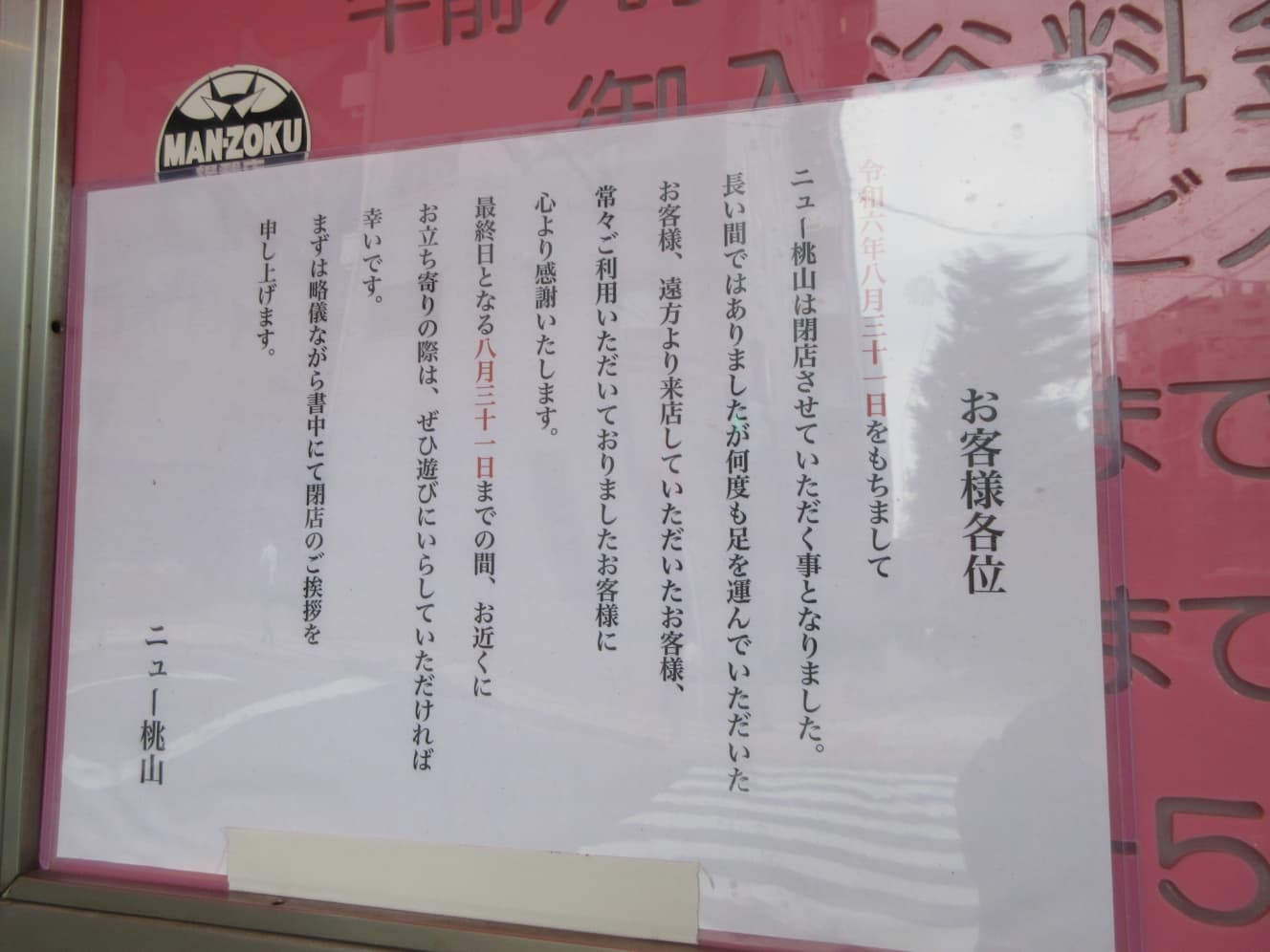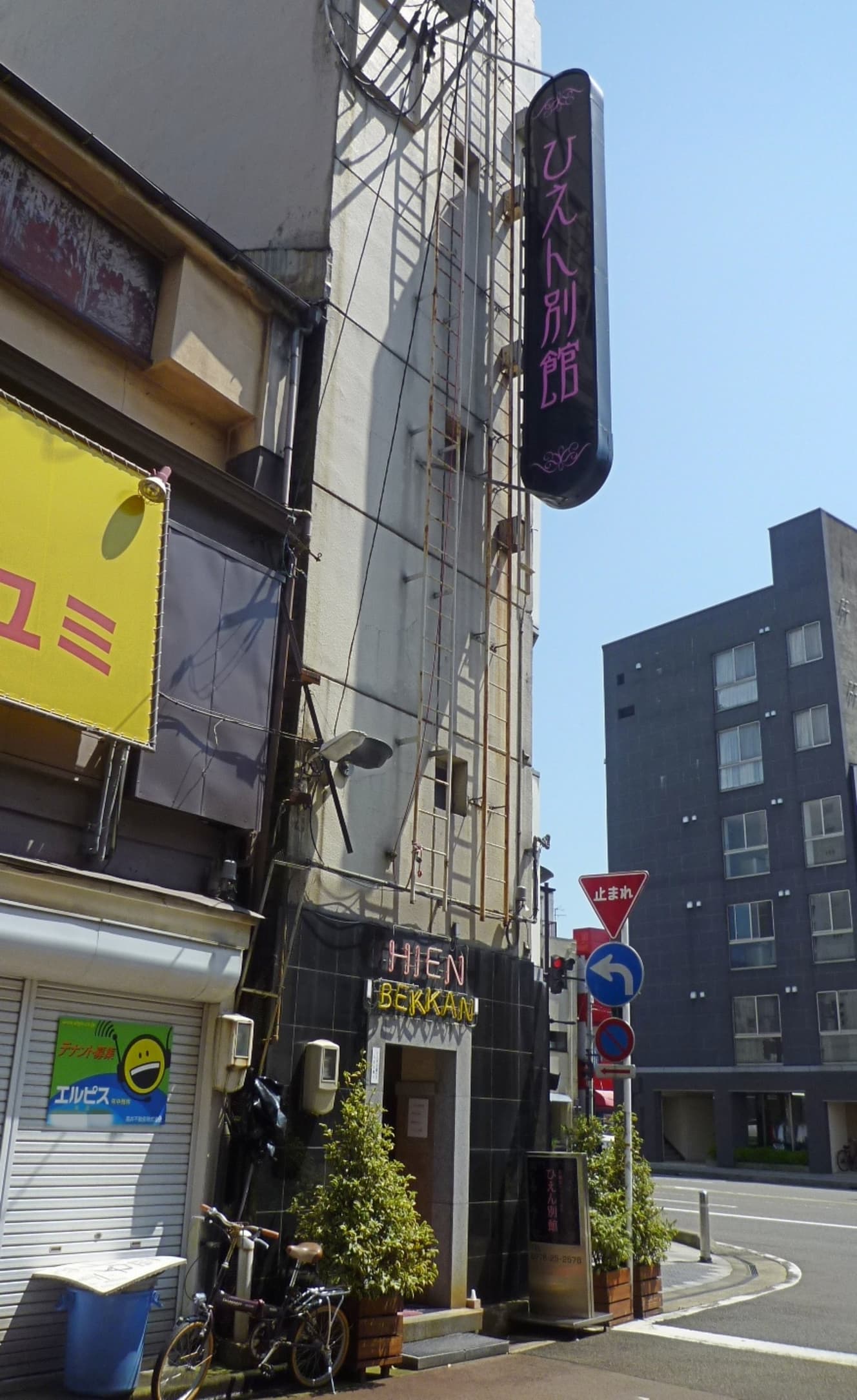Amid Chain Expansion, Which Local Soap Shops Are Thriving and Beloved by the Community?
Unique and long-established establishments closed one after another.
On August 31, as Typhoon No. 10 struck and sent shockwaves across Japan, the soap shop “New Momoyama” in Okachimachi, Tokyo, closed its doors. Established for over 50 years, it was a local specialty shop where customers could enjoy services starting from a reasonable fee of 13,000 yen for 50 minutes, available from 7 a.m.
Local, long-established soap shops, known as “local soap,” are decreasing day by day.
This decline is attributed to various intertwined factors, including more than 30 years of long-term stagnation in the Japanese economy, the development of transportation infrastructure such as shinkansen and low-cost carriers (LCC), the evolution of communication devices like computers and mobile phones leading to the penetration of the internet and the arrival of an information society, and the rise of business-type adult entertainment and oversupply. However, the main reason is that many long-established shops have been unable to keep up with the “changes of the times.” Particularly, the disappearance of long-established soap shops has become noticeable since the 2000s.
“There are few soap shops in the area, and there are no large entertainment districts nearby. Given that there are many regular customers who have been visiting for years in an area with a high elderly population, the shops have set their prices higher without much concern for competition with other stores. They have maintained these traditional management methods, continuing to operate for decades without changing their style since their founding. It seems that such shops have been swept away by the waves of change and forced to close one after another.
The situation was further accelerated by the COVID-19 pandemic starting in 2020. The avoidance of close contact significantly reduced customer numbers, leading many long-established storefront adult entertainment businesses into financial crisis. Since then, the new shops that have opened in the spaces left by these closures have predominantly been chain stores of large groups with significant financial resources and superior management know-how honed in competitive adult entertainment districts.” (Soap shop insider)
Major chain stores have replaced “local soap operators”.
The difference in management capabilities is evident at a glance when comparing websites. Established large chain stores prominently display discount information and feature recommended women on their homepage, effectively capturing customer interest. In contrast, some long-established shops lack not only discounts or cosplay event information but also do not introduce the women or provide their working schedules. There is a significant disparity in the quality, quantity, and expressiveness of the information provided to users.
The disappearance of unique, long-standing shops being replaced by chain stores feels disappointing and sad. However, from the perspective of local customers, it’s almost a dream come true that they can enjoy services at far better cost performance without needing to travel to large soap districts.
The thoroughly streamlined chain stores offer surprisingly high cost-effectiveness, providing high-level services from well-trained women at affordable prices. This also signifies progress within the adult entertainment industry. In Fukui City and Himeji City, long-established soap shops have been renewed as large chain stores following the onset of the COVID-19 pandemic, transforming their appearances and signage to be more eye-catching from afar. Many customers have reported that the revamped websites have made it easier to enjoy their services.
After the closure of “New Momoyama,” which found it challenging to continue operating as a soap shop, a delivery health service called “Uguisudani Momoyama” was launched to provide a platform for its cast, opening on September 21. While some long-established shops are closing, there are still thriving, quality establishments that have adapted to the changing times. These successful shops combine their long history and high brand recognition with effective management strategies that utilize the internet—such as regularly updating information on portal sites and focusing on content like photo diaries and rankings—to generate greater profits.
Across the nation, there are still beloved local soap shops continuing their operations. The paid version of “FRIDAY GOLD” introduces a curated list of “super hidden gems” among these establishments from various parts of Japan.
Interview, text, and photographs: Akira Ikoma





